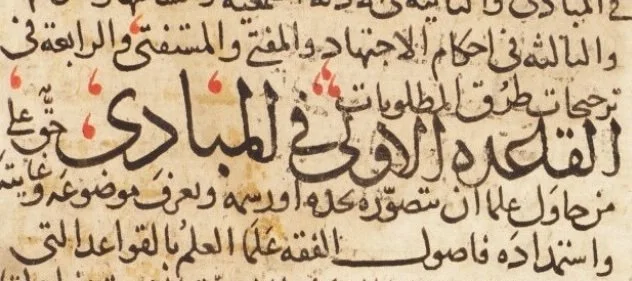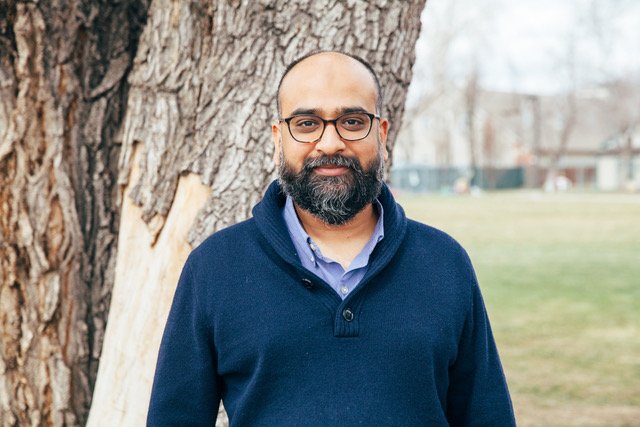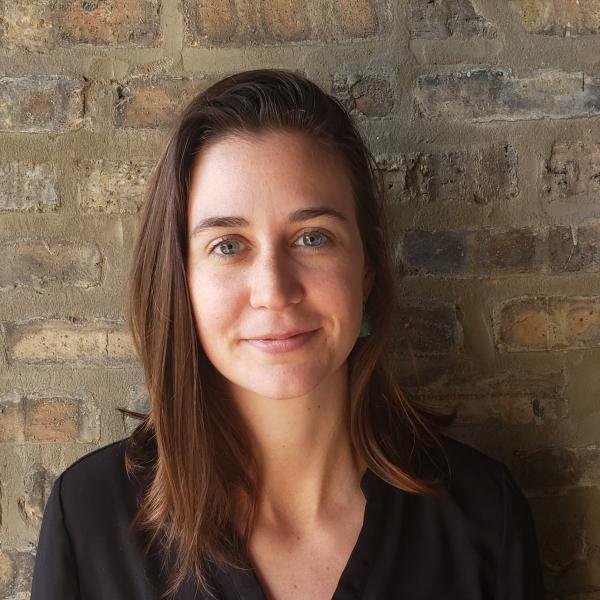“Islamic Legal Texts: In Depth”
Mediterranean Studies Summer Skills Seminar
5—8 August 2024 • Remote
The Summer Skills Seminar, “Islamic Legal Texts: In Depth” will be held via Zoom from Monday, 5 August to Thursday, 8 August 2024 from 9am to 11am and noon to 2pm MDT.
Registered Participants enter here (pw = 145753)
Access the course dropbox here.
Course overview
This Summer Skills Seminar introduces participants to Islamic law. The seminar is focused on developing the skill of reading Islamic legal texts as opposed to surveying Islamic legal doctrines. It is designed for beginners seeking to build their capacity to investigate Islamic law.
Text
The only required text is Durūs tamhīdiyya by al-Īrawānī. Download it here. Kalimāt tawḍīḥiyya by Muḥammad Āl ʿUbaydān al-Qaṭīfī will be used to unpack the text, but it is not required.
Faculty
Aun Hasan Ali is an Assistant Professor in the Department of Religious Studies at CU Boulder. He received his PhD from McGill University’s Institute of Islamic Studies. His research centers on Islamic intellectual history and he is the author of The School of Hillah and the Formation of Twelver Shii Islamic Tradition and the forthcoming Why Hadith Matter: The Evidentiary Value of Hadith in Imami Law (7th/13th to 11th/17th Centuries) (co-authored with Hassan Ansari). His recent publications include: “The Canonization of Nahj al-Balaghah between Hillah and Najaf: al-Sistani and the Iconic Authority of the Maraji,” “The Rational Turn in Imamism Revisited,” and “Some Notes on the History of the Categorization of Imami Hadith.”
Participants
Erin Atwell
(Islamic Studies, Interdisciplinary Study of Religions Program: Bard College)
Erin Atwell is Assistant Professor of Islamic Studies at Bard College. Her work explores intersections of early Islamic texts and contemporary Muslim practices. Her current book project is a study of early Islamic expressions of godfearingness (taqwā) and their contemporary re-elaboration to refuse and resist liberalizing pressures at Egypt’s al-Azhar. Erin holds a B.A. from Loyola University Chicago, an M.A. from Fordham University, an M.A. from the University of Chicago, and a Ph.D. in Near Eastern Languages & Civilizations and Anthropology from the University of Chicago.
Manuela Ceballos
(Religion: University of Tennessee, Knoxville)
I am currently Assistant Professor at the Department of Religious Studies at the University of Tennessee, Knoxville. My work centers on Moroccan Sufism in the early modern period and Christian-Muslim relations in the Western Mediterranean. I recently completed a monograph on ideas about purity, pollution, and lineage in early modern Morocco and Iberia.
Victor Gerber
(Anthropology and Classics: University of Colorado Boulder)
Victor Gerber is currently an undergraduate student at the University of Colorado Boulder. He is a double major in Anthropology and Classics and intends to add an Arabic language minor. His broad interests include Sufism, Islamic philosophy, the reception of Greek thought in the Islamic world, and the intersection of language and culture. Gerber has not yet published any scholarly work, but hopes to complete an Honors Thesis during his time as an undergraduate.
Gianni Izzo
(Middle East & North African Studies: University of Arizona)
I am a PhD candidate in the Department of Middle East & North African Studies at the University of Arizona. My research interests include Islamic intellectual history, Imami Shiʿi devotion, and religious life in the Safavid period of Iran. I have studied in Lebanon and Iran, where, in the first instance, I received my MA at the American University of Beirut. My current dissertation work addresses Imami prayer/supplication manuals and commentaries. So far, I have had two articles published on Safavid court jesters and Islamic consolation treatises (https://doi.org/10.1017/S0041977X23000460, https://doi.org/10.1093/jis/etae022), with a third article on a Shaykhi prayer commentary currently in print. I am interested in learning more about Islamic legal theory, afer having attended several classes concerning the western variety and the natural law vs. legal positivism debates. The fiqh aspect of Islam has been a blind spot throughout my academic course, and so I am looking forward to gaining a bettter understanding in this seminar.
Allison Kanner-Botan
(Comparative Literature: University of California, Los Angeles)
I am a scholar of literary cultures of the premodern Mediterranean and Western Asia. My interdisciplinary research extends across the fields of the history of sexuality, madness and disability studies, Islamic thought, translation studies, and comparative myth. I specialize in Arabic and Persian literature of the premodern Persianate world (roughly from the Balkans to Bengal). My current book project, Maddening Love: Narrating Desire in Islamic Romantic Epics, explores the influence of medical ideas about love on premodern Arabic, Persian, Turkish, and Kurdish renditions of the most famous love-story of the Islamic world, the story of Layla and the madman-poet Majnun. Challenging the fact that humanistic inquiry theorizes desire from modern, Eurocentric canons, the study will attend to premodern Islamic literature as a site for reconsidering the relationship between desire and ethics. I also have an ongoing interest in modern receptions of premodern literature and am working on projects on the translation of Layla and Majnun in Victorian England, shifting meanings of “literature” in the late Ottoman Empire, and medievalism as a political construct between Europe and the Middle East. I am currently a Chancellor’s postdoctoral fellow at the University of Colorado, Boulder, and in July I will start as an Assistant Professor in the Department of Comparative Literature at the University of California, Los Angeles
Amani Khelifa
(University of Alberta)
I am a graduate student currently pursuing my PhD in History at the University of Alberta. My research interests broadly cover the social philosophy of medieval Mālikī thought.
Before embarking on doctoral studies, I completed a Bachelor’s (Honours) in History from the University of Saskatchewan and, thereafter, a Master’s in Theology from the University of Western Ontario. My MA project was titled: Lighting the Way of the Learner: Towards a Social Virtue Epistemology in Aḥmad al-Ṣaghīr’s The Faqīh’s Lantern. The poem is a Mauritanian didactic poem about seeking knowledge, addressed to students of Mālikī law. I translated the poem, then examined and applied it to the ethics of seeking information in digital environments. Specifically, I used the philosophical school or framework called “social virtue epistemology,” which is essentially the marriage of virtue ethics to social epistemology.
The focus of my doctoral work has shifted regionally from West Africa to North Africa, and from didactic poems to legal texts. I am still in the process of narrowing down which specific text and/or author I will focus on (currently, I am considering fatwās as well as the adab al-muftī genre). Nevertheless, I hope to continue the overall thrust I began in my MA, that is, examining premodern Mālikī texts with an eye to the deeper social philosophy at work in them. In a nutshell, my research is not only about translating the words of these texts, but also their ideas, concepts, and underlying worldview, which I then aim to render in the language of modern analytic philosophy. As such, my research is at the intersection of intellectual history, North African history, Mālikī law, epistemology, and virtue ethics.
Elyakim Suissa
(Middle East Language and Cultures at the University of Washington)
Elyakim Suissa, currently an MA student in the Department of Middle East Language and Cultures at the University of Washington, focuses on sixteenth- century Ottoman religion, and specifically the relationship between Jewish law, Islamic law, and early modern Ottoman culture. His forthcoming thesis, entitled “Glimpsing the Divine Through the Mundane: Constructing an Ottoman Framework for the Sixteenth-Century Teshuvah and Fetvâ,” argues for the construction of a framework that allows us to study religious law from multiple, distinct traditions for the purpose of examining cultural and religious perceptions in an early modern Ottoman context. He is also a recipient of the Turkish and Ottoman Literature Endowed Fellowship, as well as a Rabinovitch Graduate Fellow at the Stroum Center for Jewish Studies.
Elyakim Suissa previously received his BA in 2022, in the Department of History at the University of Pennsylvania, where he produced his BA thesis, “The Law of the Other: Converts and Gentiles in the Eyes of Seventeenth-Century Istanbul Rabbis” under the advisorship of Professor Oscar Aguirre-Mandujano.
In August 2024, Elyakim looks forward to beginning a doctoral program in the Department of History at the University of Pennsylvania, where he will continue focusing on early modern Jewish and Islamic law with Professor Joshua Teplitsky.
Bogdan Smarandache
(Diplomaticon: Université de Liège)
Greetings! My name is Bogdan Smarandache, and I am a postdoctoral researcher at DiplomatiCon: A Connected History of Medieval Mediterranean Diplomacy (Excellence of Science project no. 40007541), funded by the Fonds de la Recherche Scientifique (F.R.S.- FNRS) and the Fonds Wetenschappelijk Onderzoek (FWO-Flanders), in Belgium. I am supporting the project’s database while further developing my own research on the evolution of Christian-Muslim diplomatic agreements. My main area of expertise is the Ayyu bid to early Bahri-Mamlu k period (1174–ca. 1341). I am particularly interested on how knowledge about diplomatic practice and legal frameworks were transmitted across these two periods.
I completed my PhD at the Centre for Medieval Studies, University of Toronto, in 2019, under the supervision of Professor Emerita Linda S. Northrup and Professor Mark D. Meyerson with additional guidance from Professor Michael Gervers. Subsequently, I worked as a Senior Quality Assurance Advisor for the Indigenous Advanced Education and Skills Council (IAESC) in Ontario, Canada, from 2019-2021. During this enriching period of employment, I supported the development of quality assurance standards, benchmarks, and processes under the direction of the organization’s Indigenous leadership. I also supported research and policy files, which included researching quality assurance frameworks across Canada and in other jurisdictions.
In 2021, I began my first postdoctoral fellowship at the e quipe “Islam Me die val” of the Unite Mixte de Recherche (UMR) 8167 Orient et Me diterrane e, in Paris under the supervision of Professor Sylvie Denoix (CNRS, E quipe “Islam Medie val”). During my two years there, I continued my research on negotiations between Christian and Muslim rulers, focusing on protections for juridical minorities in both Christian and Islamic territories. Additionally, I supported the project Les mots de la paix/Terminology of Peace in collaboration with the project director and co-founder, Sylvie Denoix. I am eager to develop my knowledge and understanding of Islamic law to be able to better contextualize interfaith diplomatic agreements as well as wider legal discourses within Islamic societies.
Auditor
Owen Whitman
Proposed Program
Monday, 5 August 2024
9am—11am & noon—2pm
• The conditions for legal obligation: intellect
• The meaning of akhbarnā in al-Kāfī
• The meanings of ʿaql
• The conditions for legal obligation: capacity
• The principle qubḥ al-taklīf bi-mā lā yuṭāq
• ʿAmmār al-Sābāṭī
• al-Ḥasan b. Maḥbūb al-Sakūnī
• Repairing weak chains of transmission
• Exceptions to general rules and the principle of istiṣḥāb
Tuesday, 6 August 2024
9am—11am & noon—2pm
• The conditions for legal obligation: Islam
• The legal maxim al-islām yajubbu mā qablahu
• The conditions for legal obligation: maturity
• Ḥamza b. Ḥumrān
• ʿAbd al-ʿAzīz al-ʿAbdī
• Yazīd Abū Khālid al-Kunāsī
• Ṣafwān b. Yaḥyā verses Ṣafwān b. Mihrān al-Jammāl
• Conflicting reports
• The threshold of the principles of al-istiṣḥāb al-mawḍūʿī, al-istiṣḥāb al-ḥukmī, and al-barāʾa
• al-shubuhāt al-mawḍūʿiyya, al-shubuhāt al-ḥukmiyya, al-shubuhāt al-mafhūmiyya, and al-shubuhāt al-miṣdāqiyya.
Wednesday, 7 August 2024
9am—11am & noon—2pm
• Types of water: muḍāf
• qāʿidat al-ṭahāra
• Unqualified expressions in the Quran
• al-Qāsim b. Muḥammad al-Jawharī and al-tawthīqāt al-ʿāmma
• tasālum verses ijmāʿ
• Non-Imāmī narrators and Abū Jaʿfar al-Ṭūsī
Thursday, 8 August 2024
9am—11am & noon—2pm
• Types of water: muṭlaq
• kayfiyyat al-sarāyā and custom
• ʿadam jawāz al-tamassuk bi-l-ʿāmm fī l-shubha al-miṣdāqiyya
• al-qāʿida al-mirzāʾiyya
• al-sīra al-ʿuqalāʾiyya










